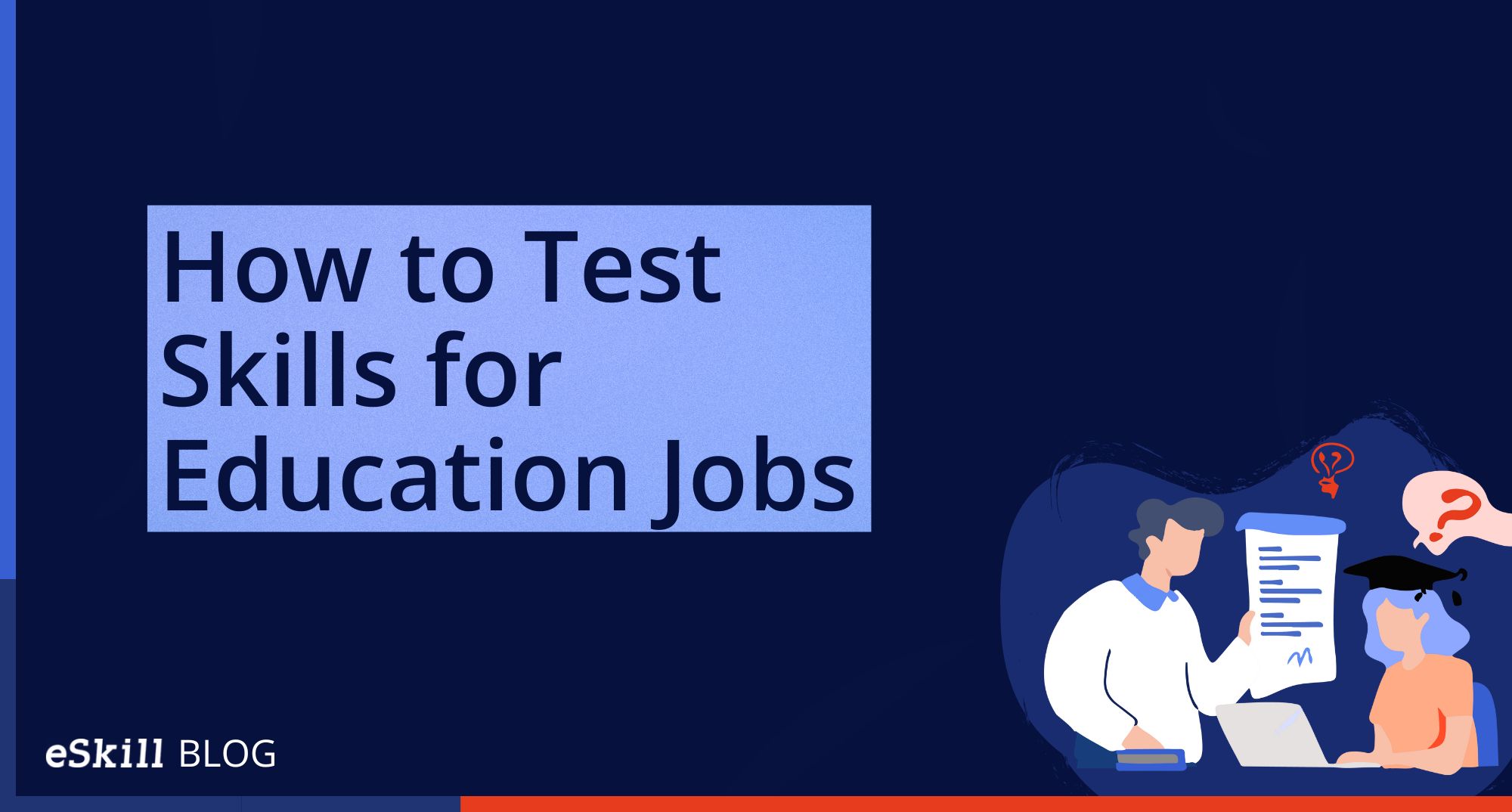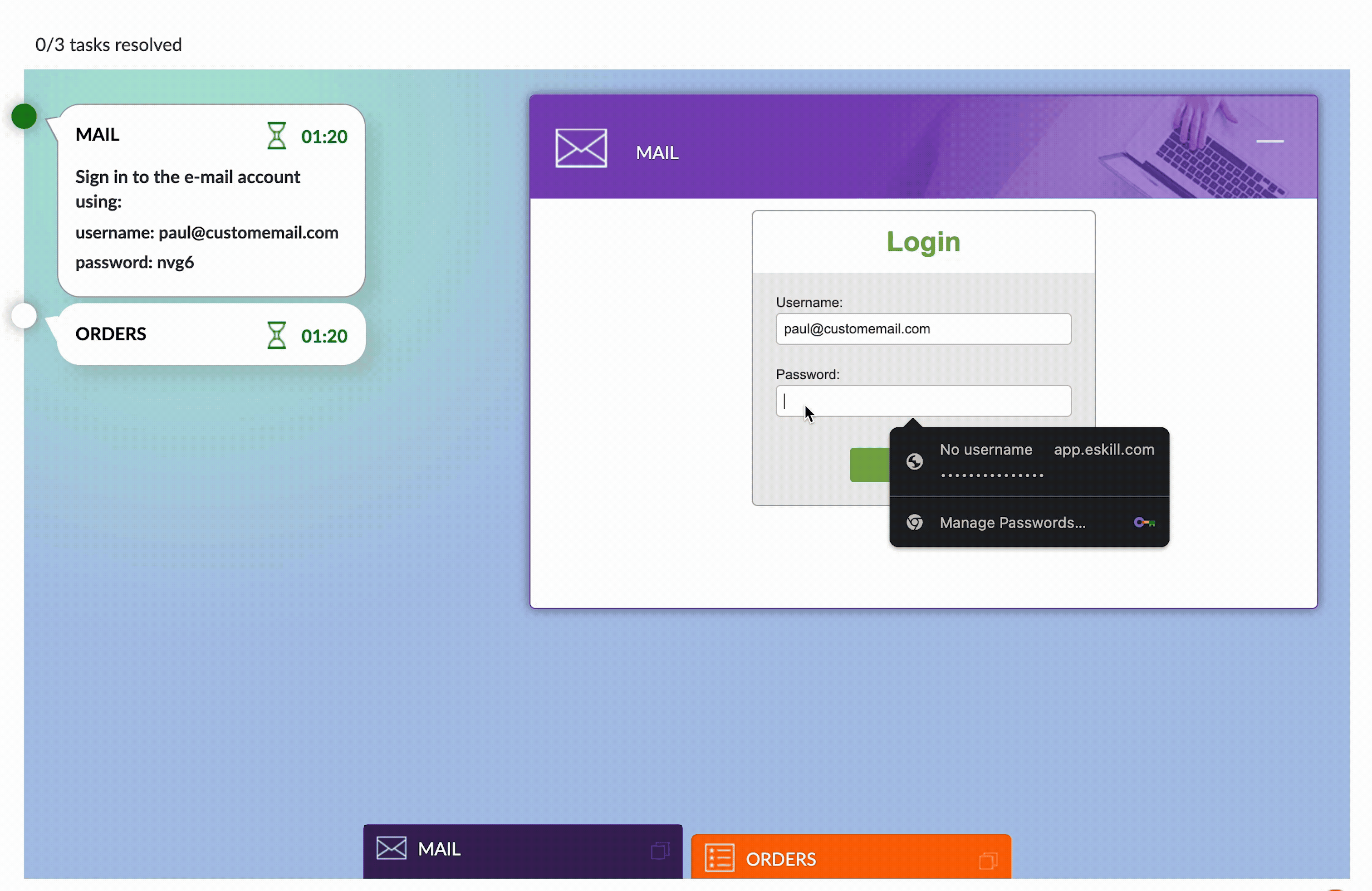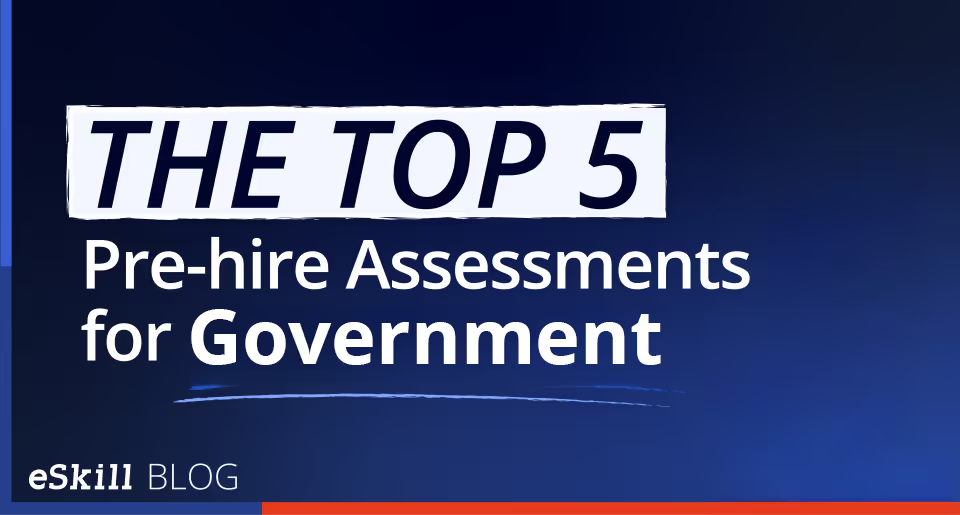Over the last few decades, the administration of skills tests has become an increasingly common practice. Some 68% of employers now use some form of job skill testing. This assessment tool can benefit organizations operating within a wide array of industries, including the education field.
By incorporating a skills test for education jobs into your hiring practices, you can identify top candidates and streamline selection. With that being said, you may not be quite sure which skills tests are most appropriate for education jobs. Fortunately, we can help.
Below, we have created an introductory guide to primary education skills tests. We discuss what a skills test is, which assessments you should be using, and the benefits of this hiring tool for your educational institution.
What Is A Core Academic Skills for Educators Test?
Skills tests are assessment tools that you can use to measure the abilities of prospective employees and existing staff members. Your team can use these assessments to gauge either hard or soft skills. Soft skills are not specific to the job that the person is applying for. Examples include interpersonal skills or attention to detail.
Conversely, a hard skills test will assess job-specific abilities. The core academic skills for educators test covers topics relevant to teachers. A few of the topics included in this assessment are classroom management, conflict resolution, and technology in the classroom.
What Is the Most Effective Skills Test for Education Jobs?
There are many highly effective skills tests that you can use to assess education job applicants. In addition to the core academic skills for educators test, you may want to administer one or more of the following:
Paraeducator Assessment: The Paraeducator assessment measures a candidate’s ability to collaborate with the classroom teacher. This skills test includes fill in the blank, multiple-choice, true/false, and select all that apply style questions. The assessment covers topics such as monitoring student performance and preparing educational materials.
Teacher Skills Test: The Teacher skills test is also 40 questions long. It addresses more advanced topics, such as using appropriate teaching methods to accommodate student needs, monitoring student progress, and preparing learning materials using relevant technology to support instruction. Candidates who perform well on this assessment possess the skills and abilities to manage a classroom.
Special Education Medical Assistance Skills Test: The Special Education Medical Assistance assessment is an excellent tool for evaluating candidates working with special education students. It covers basic care-related topics, such as communication, safety, nutrition, mobility, and hygiene.
General Scholastic Teaching Skills Assessment: The General Scholastic Teaching Skills assessment can screen teacher and paraeducator applicants. It measures the candidate’s ability to perform data analysis, behavior management, and lesson planning. Like many other skills tests, this assessment consists of 40 questions of varying formats.
Interpersonal Skills in a School Setting: Interpersonal skills are invaluable for any educator or support staff. This assessment covers core topics such as communication with parents and interacting with coworkers. By administering this assessment to applicants, you can ensure that they have the requisite skills to effectively communicate with other staff members.
Another great way to evaluate candidates is to use behavioral assessments. This hiring tool will provide insights into an applicant’s attributes. By gauging both teachable skills and inherent behavioral traits, you can ensure that you select the very best candidates during the hiring process. You can mix and match all subjects and questions available in our massive library or create it from your own content.
Benefits of Using Primary Education Skills Tests
Now that you know how to efficiently test skills for education jobs let’s recap some of the benefits of these assessments. First, skills testing will allow your hiring staff to create a better list of candidates. They can use skills assessments to identify the best applicants while eliminating unqualified individuals.
Another significant benefit of online skills testing is cost savings. Printing off stacks of paper testing sheets and booklets can quickly become expensive. You can eliminate all of this waste by transitioning to online skills testing, reducing your environmental impact, and saving money.
When screening candidates, your hiring staff simply needs to send a link via email. The applicant can use this information to log on to an online testing database. Talk about easy.
Perhaps the biggest perk to online skills testing for education jobs is that the results are available immediately. As soon as a candidate completes an assessment, your hiring team can analyze their performance.
The testing dashboard presents data in an easy-to-understand way and breaks down the candidate’s score by topic. This approach allows your staff to zero in on an applicant’s strengths and weaknesses so that they can make an informed hiring decision. When you can see everything about your candidates in one place, it’s easy to choose the best person for the position.
The Best Core Academic Skills for Educators Test
Request a demo to learn how skills test for education jobs such as core academic skills for educators and primary education skills tests can help you improve hiring outcomes.

Get ademo.






